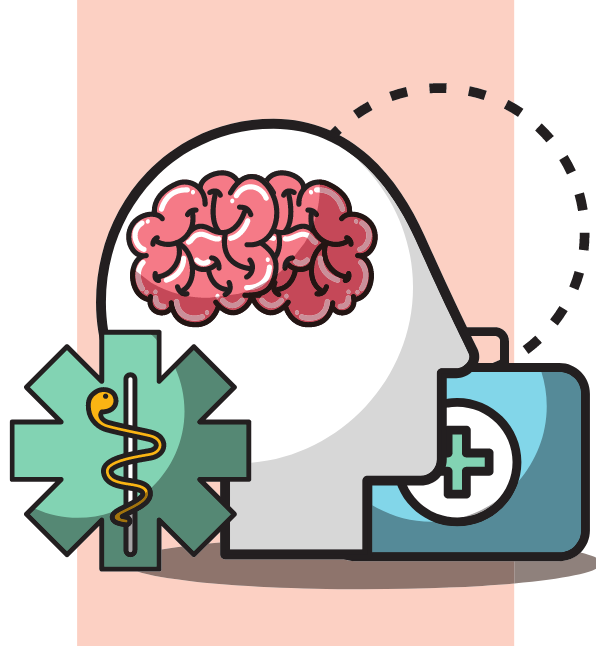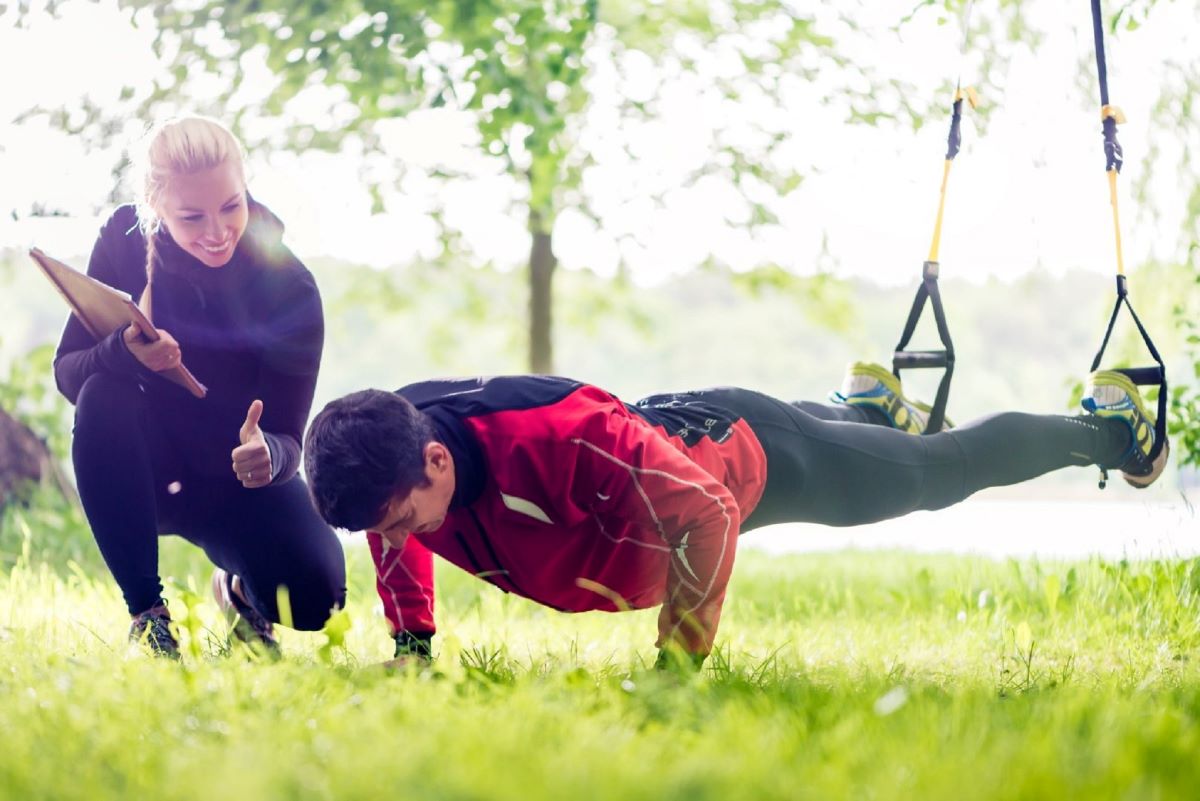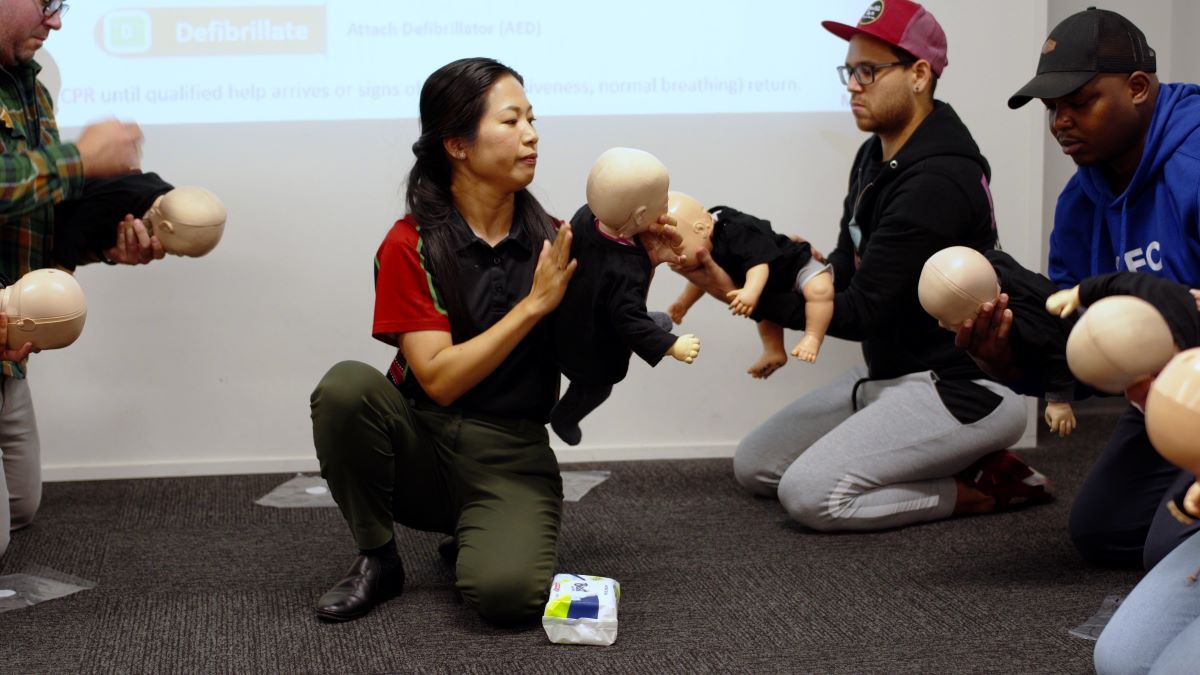Throughout October, we have been showing you how to recognise the signs of mental health, help others, help yourself, and we have discussed where you can seek help. Mental Health first aid training can help you even further and provide you with a toolkit to help people in a mental health crisis. Mental Health First Aid (MHFA), for short, is vital to help others and can give you tools to help yourself. You wouldn’t attend the scene of a physical injury without a first aid certification, so when it comes to helping others in times of mental distress, you can equip yourself best with a Mental Health First Aid Course.
Mental Health First Aid Australia
Mental Health First Aid is regulated by Mental Health First Aid Australia. Mental Health First Aid Australia is a not-for-profit organisation and was developed in 2000. Mental Health First Aid provides help to someone developing a mental health problem, having their mental health problem worsen or in a mental health crisis. This First Aid is delivered until professional help arrives or the crisis resolves.
Who is affected by Mental Health?
The short answer is everyone. If you do not or have not experienced a mental health condition, it’s more than likely that someone in your family or friendship group has. According to the Australian Bureau of Statistics, in 2007, nearly 1 in 2 Australians aged 16-85 had experienced a mental disorder during their lifetime. Currently, 9 Australians die every day from suicide, and over 65,000 Australians make a suicide attempt each year, according to LifeLine.
Mental Health has only become more prominent with the impact of Coronavirus (Covid-19). The sudden impact of restrictions placed on members of the public has meant that some members of the community have felt isolated and depressed. As restrictions have begun to ease, there has also been an understandable level of anxiety about what the ‘new normal’ will look like and how we can begin to move forward. The need for these services is so great that every state has developed Covid-19 mental health support hotlines for people to call. They have also increased the number of accessible bulk-billed counselling and therapy sessions available in the year for people on a Mental Health Care Plan.
What does a Mental Health Course include?
Mental Health First Aid training typically takes 12 hours total and can be completed over just two short day sessions. The course will cover mental health conditions and situations such as:
- Depression
- Anxiety
- Psychosis
- Substance Abuse
And will cover mental health crises such as:
- Suicidal thoughts and behaviours
- Self-harm
- Panic attacks
- Traumatic events
- Severe effects of drugs and alcohol
- Severe psychotic states
- Aggressive Behaviours
The course follows Mental Health First Aid Australia’s action plan and manual, helping you find out how to recognise signs and symptoms, and discover how and where to seek professional help.
@firstaidproau What you’ll learn in a mental health first aid course! Book for one today! Link in the bio. #fyp #foryou #xyzbca #mentalhealth #learnontiktok #mums ♬ overwhelmed by royal and the serpent - 🍒 𝚍𝚊𝚢𝚌𝚘𝚛𝚎 🍒
Who do Mental Health First Aid Courses help?
Mental Health First Aid courses can help everyone. It may be a friend, a family member, a work colleague or even an acquaintance. The training will raise your level of awareness too, helping you to identify early warning signs. This course will help you and the others you learn with to support the people around you.
Mental Health in the workplace
Mental Health First Aid is particularly popular in workplaces and acts as not only a team bonding exercise but a reminder to staff to look out for those around them. The sense of camaraderie delivered by a Mental Health First Aid course is unparalleled, and your workplace will be able to provide potentially life-saving support to each other on a daily basis once the two short days of learning are completed.
ALGEE
Mental Health Action Plans are based around the acronym ALGEE.
ALGEE stands for:
A– Approach the person, assess and assist with any crisis
L– Listen and communicate non-judgementally
G– Give support and information
E– Encourage the person to get professional help
E– Encourage other supports.
How Mental Health training can improve your work
Depending on your workplace and the role you’re employed in, Mental Health training can potentially count towards your Continuing Professional Development or CPD for short.
CPD is required within formally regulated sectors such as lawyers, doctors, accountants, teachers, and engineers. CPD can be formal or informal; however, it should be considered an investment in your career and expanding your skillset. If you are interested in using MHFA with First Aid Pro towards your CPD, check with your industry body today!
Suicidal thoughts
If this article has brought up any issues for you and you urgently need someone to talk to, do not hesitate to contact Lifeline on 13 11 14.







